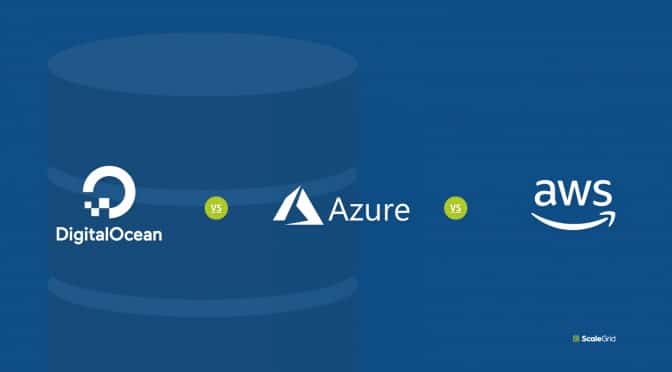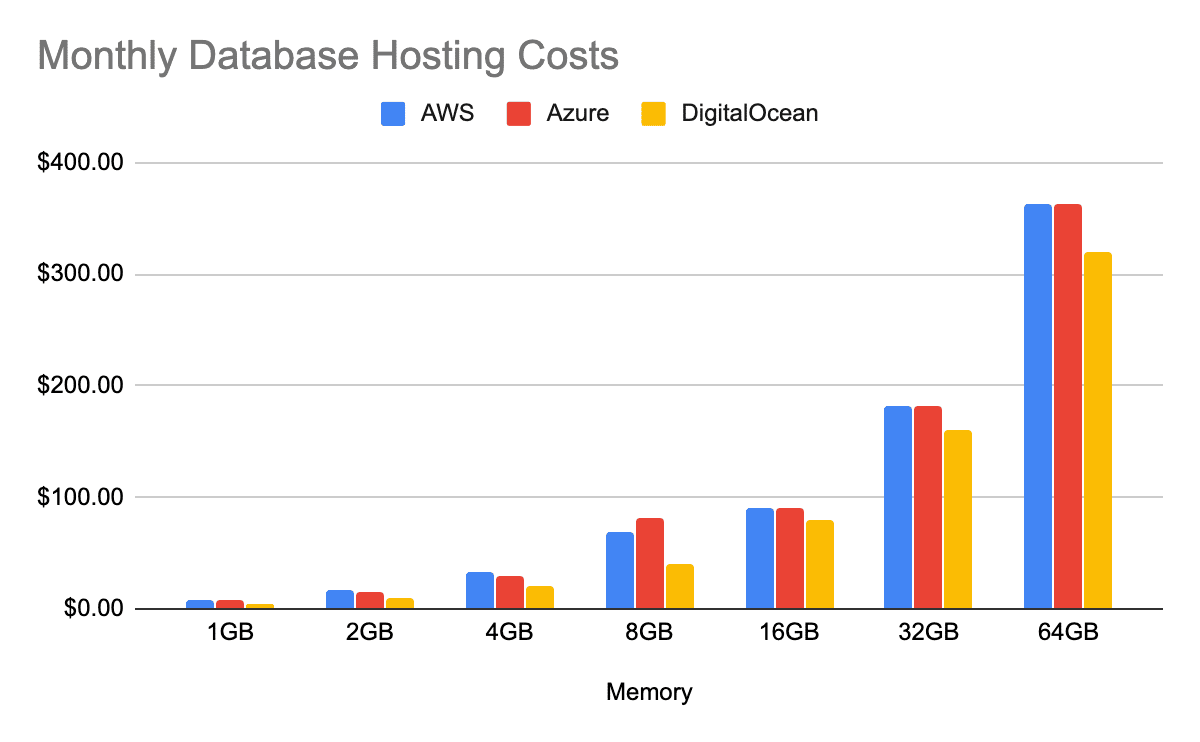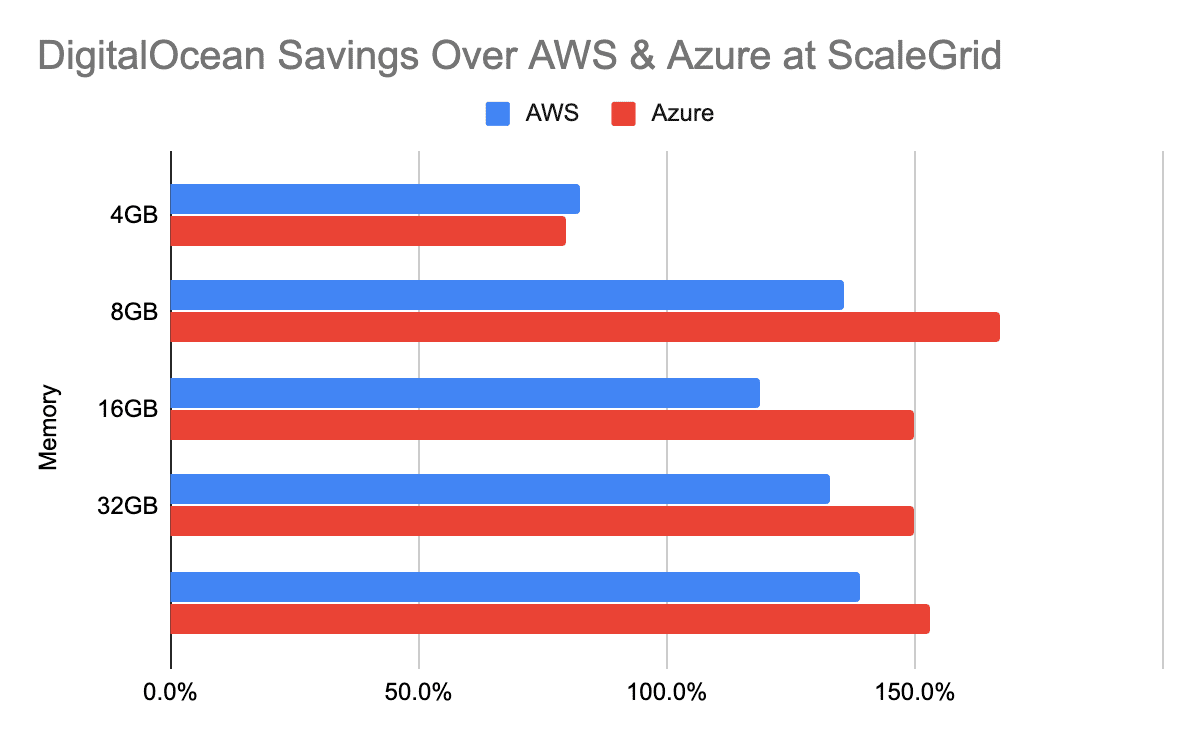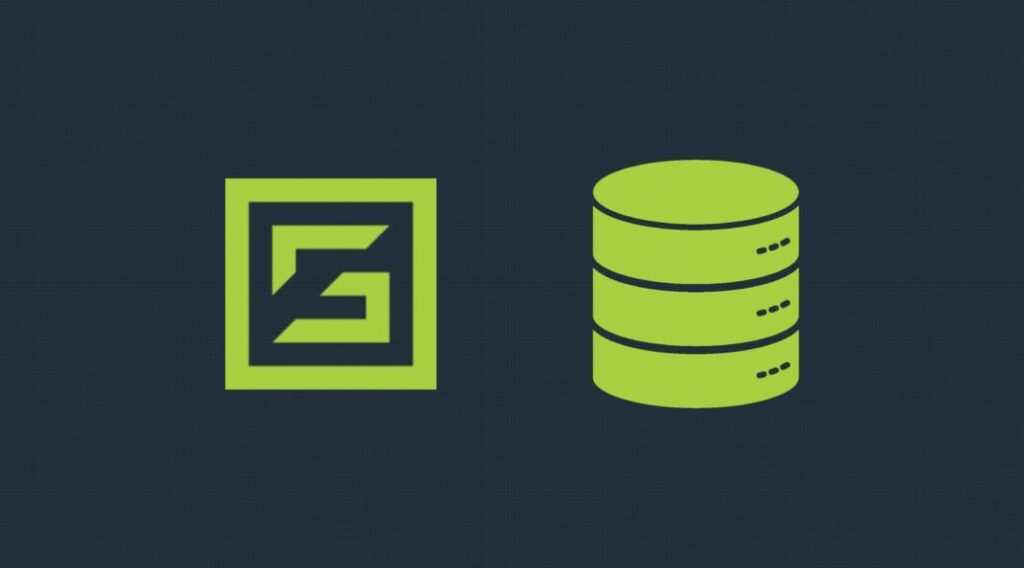If you’re hosting your databases in the cloud, choosing the right cloud service provider is a significant decision to make for your long-term hosting costs. This is especially apparent in today’s world where organizations are doing whatever they can to optimize and reduce their costs.
Over the last few weeks, we have been inundated with requests from SMB customers looking to improve the ROI on their database hosting. In this article, we are going to compare three of the most popular cloud providers, AWS vs. Azure vs. DigitalOcean for their database hosting costs for MongoDB® database to help you decide which cloud is best for your business.
Comparing Cloud Instance Costs
So, which cloud provider provides the most cost-effective solution for database hosting? We compare AWS vs. Azure vs. DigitalOcean using the below instance types:
| AWS | EC2 instances |
| Azure | VM instances |
| DigitalOcean | Droplets |
Since database hosting is more dependent on memory (RAM) than storage, we are going to compare various instance sizes ranging from just 1GB of RAM up to 64GB of RAM so you can see how costs vary across different application workloads.
Let’s take a look at the monthly cost (720 hours) of database hosting for standalone, on-demand, dedicated instances on AWS, Azure, and DigitalOcean. As you can see from the graph below, DigitalOcean database hosting provides significant cost savings over both AWS and Azure. Additionally, their Droplet pricing is extremely simple and easy to understand – $5/GB.
As you can see from the above chart, on average, DigitalOcean instance costs are over 28% less expensive than AWS and over 26% less than Azure.
Comparing ScaleGrid Database Hosting Costs: AWS vs. Azure vs. DigitalOcean
As mentioned above, the reason we decided to write this article is because of a recent increase in questions from customers on how they can reduce their database hosting costs, so we wanted to make sure to compare the costs of our fully managed DBaaS solution across cloud providers as well. Here are the configurations for this comparison:
| Plan | Dedicated Hosting |
| Database | MongoDB® Database |
| Replication Strategy | 2 Replicas + Arbiter |
Our Dedicated Hosting plans are all-inclusive, including all machine, disk, and network costs. These plans are fully managed for you across any of these cloud providers and come with a comprehensive console to automate all of your database management, monitoring, and maintenance tasks in the cloud.
Let’s take a look at how ScaleGrid Dedicated Hosting pricing for MongoDB® database compares across AWS vs. Azure vs. DigitalOcean:
| ScaleGrid Dedicated Plans | AWS | Azure | DigitalOcean |
|---|---|---|---|
| 2GB | $190 | $187 | $104 |
| 4GB | $330 | $374 | $140 |
| 8GB | $657 | $750 | $300 |
| 16GB | $1,164 | $1,250 | $500 |
| 32GB | $1,912 | $2,025 | $800 |
ScaleGrid also offers DigitalOcean support for MySQL, PostgreSQL, and Redis™ with the same pricing by RAM when compared to DigitalOcean’s Managed Databases solution. While pricing is the same, ScaleGrid provides an average of almost 40% higher throughput over DigitalOcean for MySQL, and up to 94% higher throughput for balanced workloads when compared to DigitalOcean for PostgreSQL. Check out these posts to see the performance benchmark between these two providers:
- Best MySQL DigitalOcean Performance – ScaleGrid vs. DigitalOcean Managed Databases
- Comparing PostgreSQL DigitalOcean Performance – ScaleGrid vs. DigitalOcean Managed Databases
How much can you save migrating to DigitalOcean?
So, are you deploying the MongoDB® database on AWS or Azure, and wondering how you can lower your database hosting costs? Let’s see how much you can save by migrating your hosting for the MongoDB® database to DigitalOcean:
ScaleGrid’s Dedicated Hosting service with 2 Replicas + Arbiter for MongoDB® database on DigitalOcean saves you on average 122% on your monthly AWS hosting costs, and 140% on your monthly Azure hosting costs. The above chart outlines the cost savings across different plans, and ranges from around 80% cost-savings for 2GB of RAM, up to 153% cost-savings in our 32GB of RAM plan size.
DigitalOcean Advantages
DigitalOcean provides many advantages for database hosting, and you can learn more about them in our The Best Way to Host MongoDB on DigitalOcean blog post. Here’s a quick overview of the key advantages:
- Developer-friendly
- Simple pricing
- SSD-based VMs
- High performance
DigitalOcean Hosting FAQs
Is my database cluster still highly available?
Yes. All of our high availability options are offered in DigitalOcean, including 2 Replicas + 1 Arbiter, 3 Replicas, and custom replica set setups. DigitalOcean does not have the concept of availability zones (AZ), so we distribute the nodes across MongoDB DigitalOcean Regions – ScaleGrid different regions. For example, in the US, we distribute nodes across New York 3, New York 2, and New York 1.
Does it affect latency?
Yes, you can see an increase in latency. Ideally, we would want to see both the application and the database in the same data center. So, if you’re hosting your application in AWS or Azure and moving your database to DigitalOcean, you will see an increase in latency. However, the average latencies between AWS US-East and the DigitalOcean New York data center locations are typically only 17.4 ms round trip time.
How can I migrate?
ScaleGrid provides an Import wizard to migrate data from one cluster to another. If you have any special needs for your migration, please contact support@scalegrid.io.
More tips for you
The Best Way to Host MongoDB on DigitalOcean
MongoDB is the #3 open-source and #1 NoSQL database in the world. You may assume a majority of deployments are run on AWS, Azure, or GCP, but many SMBs gravitate towards the developer-friendly cloud, DigitalOcean. Learn more
Comparing MongoDB Performance on AWS, Azure & DigitalOcean
Before you invest a lot of time and energy into a particular cloud, it’s important to understand the overall performance characteristics of MongoDB on that cloud. We decided to put it together for you as part of our performance series. Learn more





